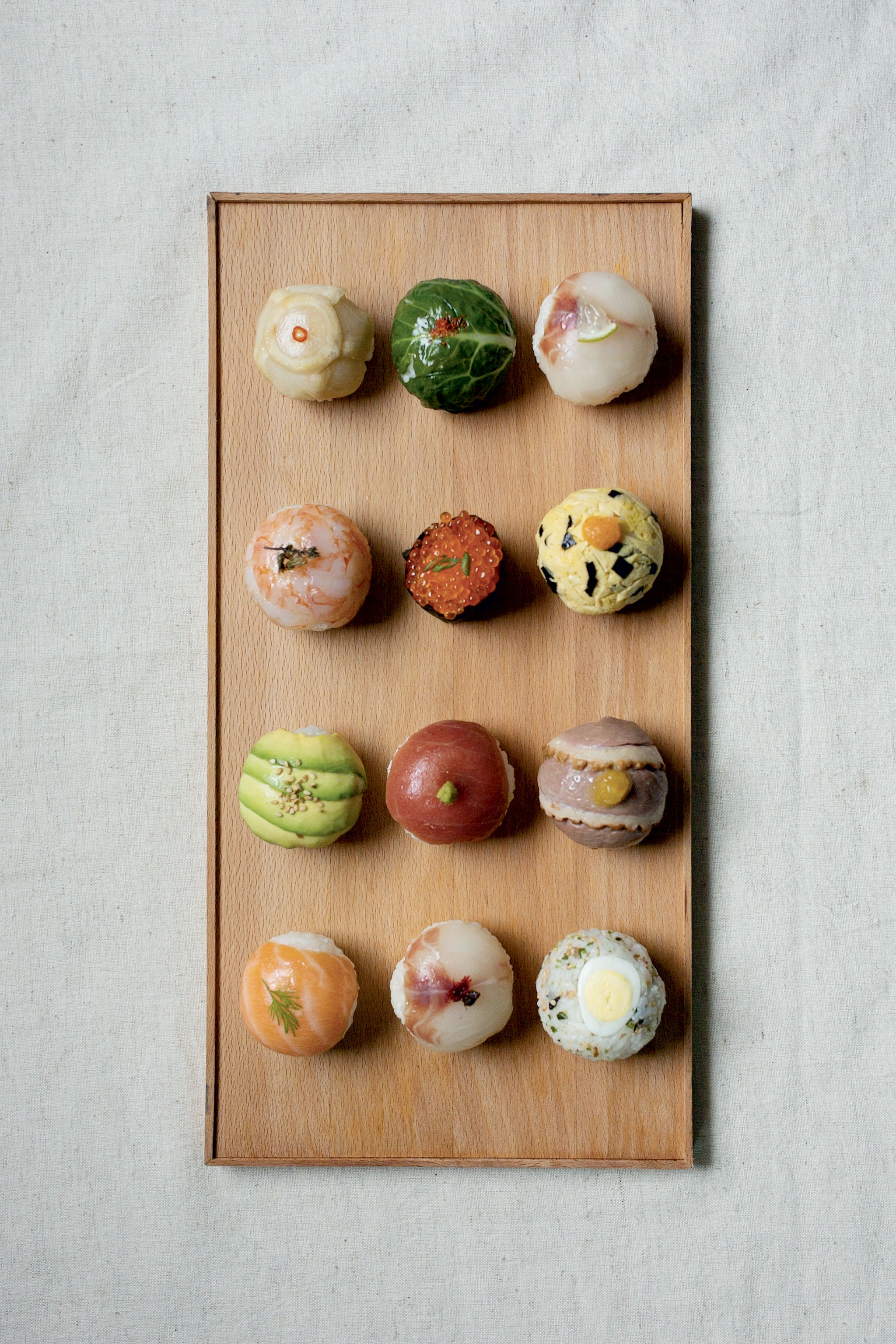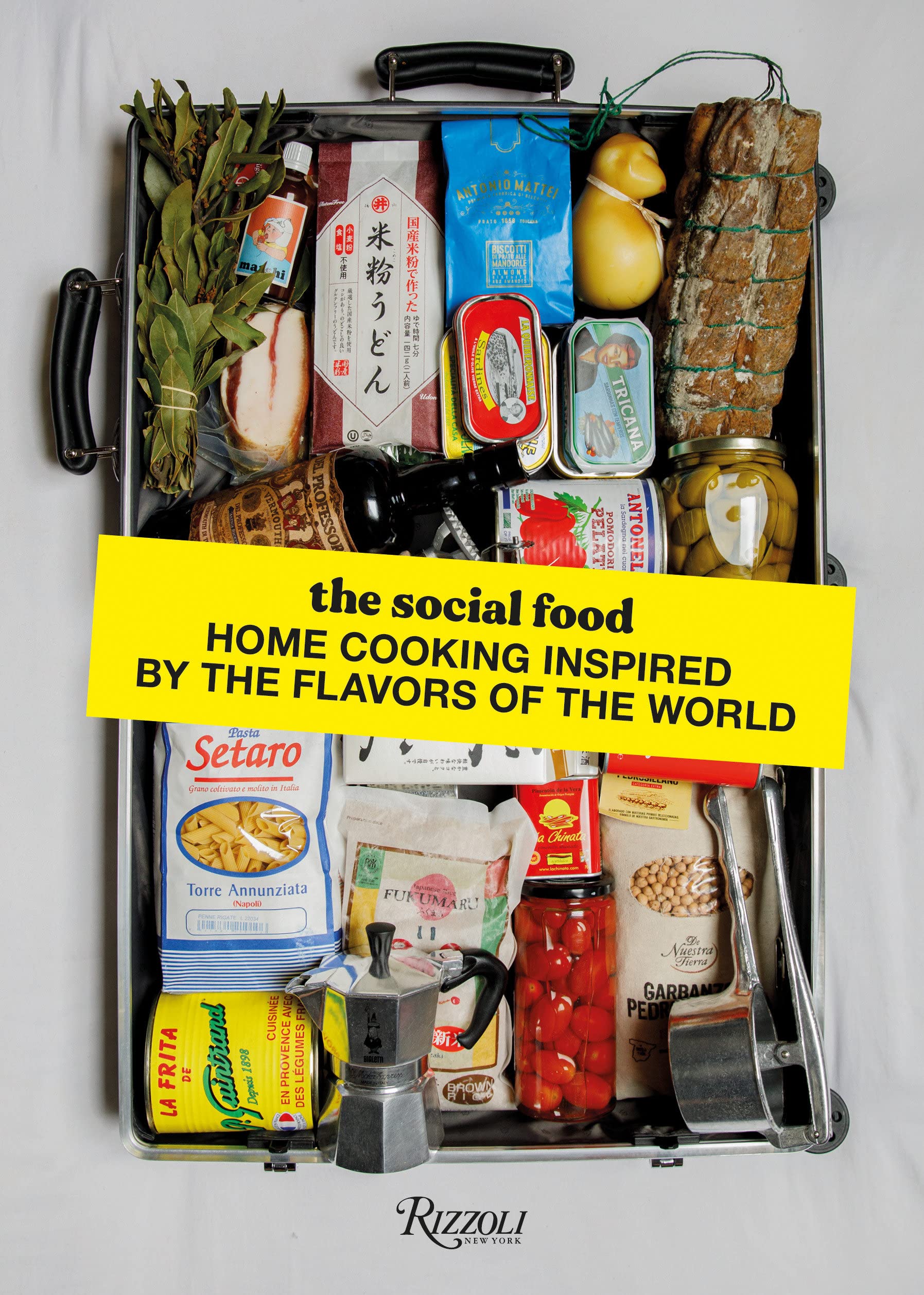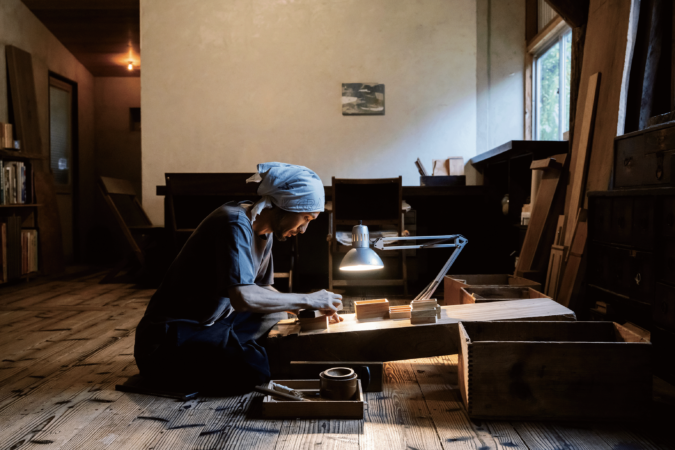Recipe for ‘Temari Sushi’ by The Social Food
Shirley Garrier and Mathieu Zouhairi share this recipe for ball-shaped sushi inspired by toys believed to bring luck in the 15th century.

© The Social Food
With their round shape and various colours, temari sushi are as pleasing to the eye as they are to the taste buds. These sushi, the name of which literally means ‘handball’, are one of the easiest kinds to make. They are composed of a round ball of rice delicately covered with thin slices of fish or vegetables and topped with ginger, spices or spring onion.
The Social Food: Home Cooking Inspired by the Flavours of the World compiles 80 recipes that allow readers to travel around the world without leaving their kitchen. ‘The Social Food is about our taste for travelling and our fascination for the different culinary cultures, and now our experiences in the kitchen’, the duo explain. Shirley Garrier and Mathieu Zouhairi draw inspiration from Japan in particular, with a number of the recipes coming from the country. With street food staples and more traditional dishes, the recipes in the book fuse Asian and European cuisines.
These sushi take their name from the temari balls first made in Japan in the 15th century from scraps of fine fabrics like silk, an artisanal practice inherited from China. These balls were then given to children for the New Year as a toy to bring them good fortune.
For this recipe, Shirley Garrier and Mathieu Zouhairi leave chefs the freedom to choose which ingredients they use, but recommend that they mainly use seasonal vegetables. With regard to the spices, ginger can be replaced by spring onion or toasted sesame depending on the palate.
Serves 2
Ingredients
Sushi rice
Fish of your choice
Vegetables of your choice, preferably seasonal
Spices. Depending on taste: grated ginger, toasted sesame, spring onion, herbs
2 eggs
1 tbsp mirin
1 tbsp soy sauce
Method
Cut the fish into very thin sashimi and press down lightly on the fillets using the flat side of the knife.
Blanch the vegetables in boiling salted water and cool in ice water.
Shell and cook the prawns for 20 seconds in the boiling water, cut them in half lengthways, then press down using the flat side of the knife.
Cut the avocado into thin slices and sprinkle with lemon to prevent them from oxidising.
Mix the eggs, mirin and soy sauce in a bowl and cook like crêpes in a pan.
Stack and roll the crêpes, then slice them into thin strips.
Assembly
Place a slice of fish on a sheet of clingfilm.
Roll a ball of rice and add a dash of wasabi or grated ginger and place it in the centre of the fish.
Seal up the sides and rotate the ball on itself to compress the sushi.
Unwrap and place on a plate. You can do this with all the ingredients of your choice.
Have fun!
The Social Food: Home Cooking Inspired by the Flavours of the World (2022), a recipe book by Shirley Garrier and Mathieu Zouhairi published by Rizzoli.
Shirley Garrier and Mathieu Zouhairi are behind the Instagram account The Social Food where they share their travels, restaurant recommendations and recipes. Shirley Garrier, a self-taught chef who took part in the show Masterchef in 2013, creates the recipes, and Mathieu Zouhairi captures them on camera.
It was on their return from Japan, cupboards full of Japanese products, that they started sharing their recipes on the social media platform in the depths of the pandemic. These recipes now appear in this book, The Social Food: Home Cooking Inspired by the Flavours of the World.

© Rizzoli
TRENDING
-
Hiroshi Nagai's Sun-Drenched Pop Paintings, an Ode to California
Through his colourful pieces, the painter transports viewers to the west coast of America as it was in the 1950s.

-
A Craft Practice Rooted in Okinawa’s Nature and Everyday Landscapes
Ai and Hiroyuki Tokeshi work with Okinawan wood, an exacting material, drawing on a local tradition of woodworking and lacquerware.

-
The Tattoos that Marked the Criminals of the Edo Period
Traditional tattoos were strong signifiers; murderers had head tattoos, while theft might result in an arm tattoo.

-
‘Shojo Tsubaki’, A Freakshow
Underground manga artist Suehiro Maruo’s infamous masterpiece canonised a historical fascination towards the erotic-grotesque genre.

-
‘Seeing People My Age or Younger Succeed Makes Me Uneasy’
In ‘A Non-Conformist’s Guide to Surviving Society’, author Satoshi Ogawa shares his strategies for navigating everyday life.





